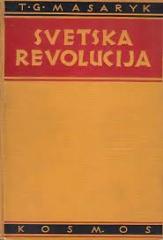
Izvori totalitarizma
„Elemente und Ursprünge totaler Herrschaft“ (1951) ist ein Meisterwerk der politischen Philosophie und eines der einflussreichsten Werke der Politikwissenschaft des 20. Jahrhunderts. Das Buch bietet Einblick in Arendts tiefgründige Überlegungen zu den Wur
Das Buch gliedert sich in drei Teile: Antisemitismus, Imperialismus und Totalitarismus. Jeder Teil analysiert die wichtigsten historischen und gesellschaftlichen Prozesse, die den Aufstieg totalitärer Systeme ermöglichten.
Arendt untersucht die historische Entwicklung des Antisemitismus, insbesondere im Europa des 19. Jahrhunderts, als Schlüsselelement, das den Boden für den Totalitarismus bereitete. Sie konzentriert sich auf die Dreyfus-Affäre in Frankreich als Beispiel für institutionalisierte Diskriminierung und soziale Polarisierung und betont, wie moderne Bürokratie und soziale Atomisierung die Verbreitung von Judenhass begünstigten.
Der zweite Teil befasst sich mit der europäischen Kolonialexpansion vom späten 19. bis zum frühen 20. Jahrhundert und verknüpft imperialistische Ideologien mit Rassismus, bürokratischer Herrschaft und Entmenschlichung. Arendt zeigt, wie imperialistische Praktiken, wie etwa die koloniale Ausbeutung, Regierungsmodelle hervorbrachten, die später an totalitäre Regime angepasst wurden.
Im letzten Teil definiert Arendt Totalitarismus als eine neue Regierungsform, die sich von traditionellen Diktaturen unterscheidet. Charakteristisch für diese Gesellschaft sind absolute Kontrolle, Terror, Propaganda und die Zerstörung der Individualität. Nationalsozialismus und Stalinismus werden als Systeme dargestellt, die die Massen manipulieren, den Rechtsstaat abschaffen und Ideologie nutzen, um die Illusion eines unausweichlichen historischen Prozesses zu erzeugen. Arendt betont die Rolle von Gefühlen der Hilflosigkeit und des Gemeinschaftsverlusts in Massengesellschaften, die den Aufstieg totalitärer Bewegungen begünstigen.
„Elemente und Ursprünge totaler Herrschaft“ ist ein Schlüsselwerk zum Verständnis der Dynamik autoritärer Regime und der Gefahren der Entmenschlichung. Arendt führt Konzepte wie die „Banalität des Bösen“ ein (die später in anderen Werken weiterentwickelt wurden) und betont die Bedeutung von Pluralismus und politischer Partizipation für die Wahrung der Freiheit. Das Buch wurde zu einer Grundlage für die Erforschung des Totalitarismus und beeinflusste Politikwissenschaft, Soziologie und Philosophie. Ihre Analyse ist nach wie vor relevant für aktuelle Debatten über Populismus, Autoritarismus und den Verlust demokratischer Werte.
„Schon wenige Jahre vor 1933 wusste Hannah Arendt, dass das, was sie für unmöglich gehalten hatte, geschehen würde. Als sie 1933 ankam, wusste sie, wie weitreichend der Wandel sein würde.“ – Karl Jaspers
No copies available
The last copy was sold recently.





